#Baykar Technology
Text
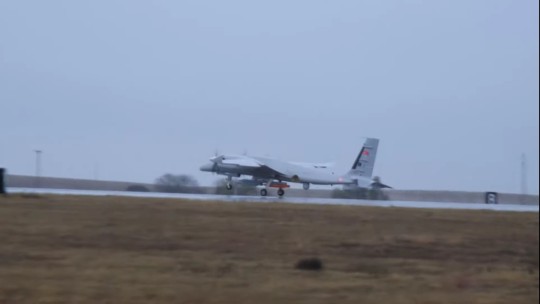
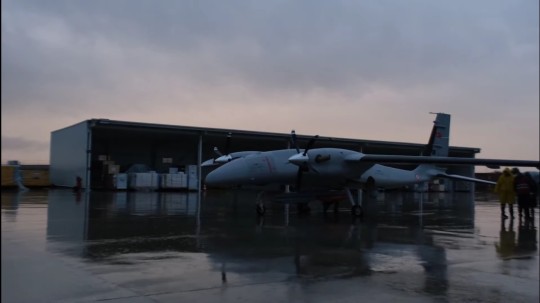

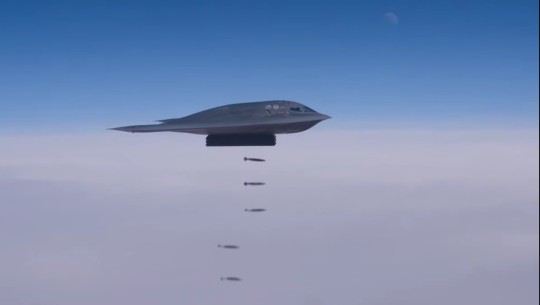
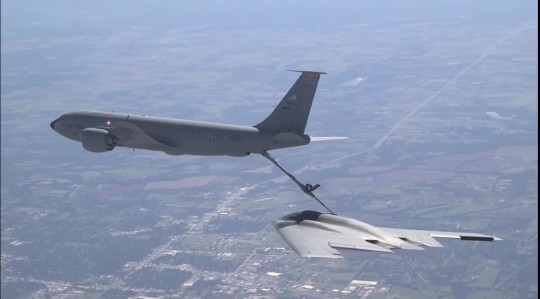
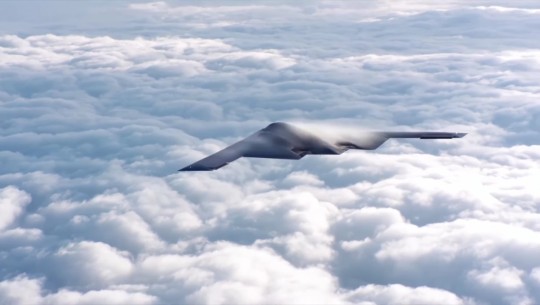
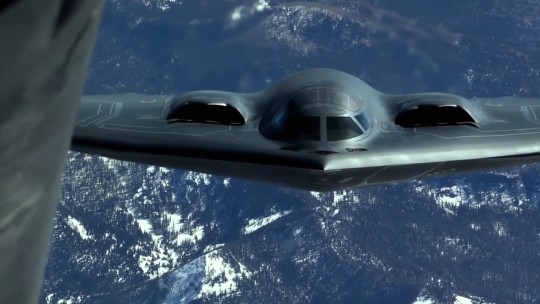


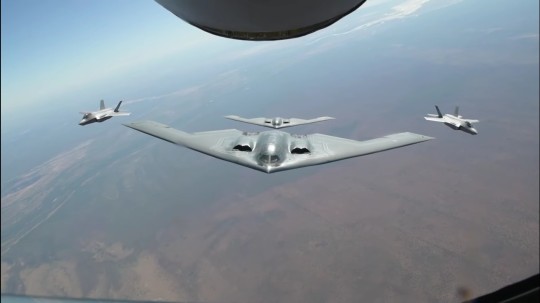
#air force#aircraft#turkey#turkiye#military#turkish#Baykar Technology#Selçuk Bayraktar#Bayraktar Akıncı#Akıncı#Tolun ammunition#turkish armed forces#roketsan#B-2A Spirit#KC-135 Stratotanker#Aerial refueling#Tanker Aircraft#F-35 A Lightning II
22 notes
·
View notes
Text

South Korea will upgrade the long-range mission capabilities of the F-15K fighter
The project, scheduled from 2024 to 2034, has a total budget of approximately US$ 2.89 billion.
Fernando Valduga By Fernando Valduga 03/23/2024 - 15:43in Military
The South Korean Air Force is launching the "F-15K performance improvement project" to improve radar systems and increase the long-range mission capabilities of its F-15K fighters.
The Defense Security Committee recently approved an acquisition plan to advance the project through foreign purchases, specifically the Foreign Military Sales (FMS) program, the Defense Acquisition Program Administration (DAPA) said in a statement on Friday.
The updates are expected to allow the F-15K to identify and attack targets, ensuring stable operational conditions, crucial for extended missions.
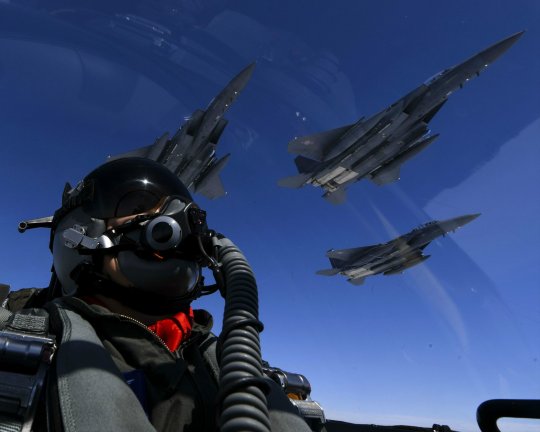
The project, scheduled from 2024 to 2034, has a total budget of approximately US$ 2.89 billion.
Boeing unveiled plans in December 2023 to comprehensively upgrade South Korea's F-15K fleet. The improvement initiative targets three main areas: the installation of the advanced AN/APG-82 radar, reinforcing the cabin display capabilities and integrating the electronic warfare suite 'Eagle Passive/Active Warning and Survivability System' (EPAWS).
The decision to invest heavily in the F-15 fleet is aligned with the strategic objectives of South Korea, especially given the relatively young age of the jets, with an average of just over 14 years. Originally acquired under the FX program in the mid-1990s, the first batch of 61 F-15K entered service at the end of 2005 and continues to play a crucial role in the combat capabilities of the Republic of Korea Air Force RoKAF).
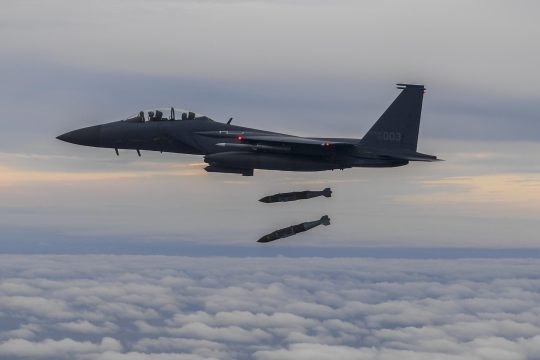
The F-15K variant is suitable for long-range attack missions, including against reinforced North Korean targets.
Tags: Military AviationBoeing F-15K Slam EagleROKAF - Republic of Korea Air Force/South Korean Air Force
Sharing
tweet
Fernando Valduga
Fernando Valduga
Aviation photographer and pilot since 1992, he has participated in several events and air operations, such as Cruzex, AirVenture, Dayton Airshow and FIDAE. He has works published in specialized aviation magazines in Brazil and abroad. He uses Canon equipment during his photographic work in the world of aviation.
Related news
MILITARY
GKN Aerospace receives request for future Swedish propulsion and hunting power concept studies
22/03/2024 - 19:02
MILITARY
Baykar tests new ammunition on the Akinci drone and presents two TB2 UAVs from the Maldives
22/03/2024 - 14:00
MILITARY
French General Directorate of Arms receives two Rafale B jets to be modified in the F4.1 standard
22/03/2024 - 11:00
LiteHUD.
FIDAE
BAE Systems will demonstrate its proven technologies in defense and regional partnerships at FIDAE 2024
22/03/2024 - 10:00
HELICOPTERS
IMAGES: China's new Z-21 heavy attack helicopter is seen for the first time
22/03/2024 - 08:30
Concept of future Swedish hunting in image of 2020.
MILITARY
Saab receives request for concept studies of future Swedish hunting
22/03/2024 - 07:27
10 notes
·
View notes
Text
Azerbaijan Opens Facilities for New Bayraktar Akinci Unmanned Combat Aerial Vehicle
Azerbaijan has opened a training facility and hanger for a new Akinci unmanned combat aerial vehicle, confirming the country bought the Turkish-made combat system. The training facility is for UAV operators, while the hanger will serve as a maintenance headquarters. The Feb. 9 ceremony also involved a flight of the Akinci, according to the Azeri government. The chief technology officer of Akinci manufacturer Baykar, Selcuk Bayraktar, posted images of the event on X, formerly known as Twitter. Attendees included Bayraktar, Azeri President Ilham Aliyev and his son Heydar Aliyev, as well as other high-ranking officers.
Azerbaijan has opened a training facility and hanger for a new Akinci unmanned combat aerial vehicle, confirming the country bought the Turkish-made combat system. The training facility is for UAV operators, while the hanger will serve as a maintenance headquarters. The Feb. 9 ceremony also involved a flight of the Akinci, according to the Azeri government. The chief technology officer of Akinci…

View On WordPress
0 notes
Text
Ρωσία: Η τουρκική εταιρεία Baykar στην Ουκρανία είναι νόμιμος στρατιωτικός στόχος για εμάς
Ο Ρώσος βουλευτής Ντμίτρι Μπελίκ ανακοίνωσε ότι βλέπουν την εγκατάσταση παραγωγής UCAV που θα κατασκευάσει η Baykar Technology στην Ουκρανία ως «νόμιμο στρατιωτικό στόχο». Αυτή η δήλωση ήρθε αφότου ο Γενικός Διευθυντής Τεχνολογίας της Baykar Χαλούκ Μπαϊρακτάρ ανακοίνωσε ότι εργοστάσιο UCAV θα δημιουργηθεί κοντά στο Κίεβο. Η Ρωσία έχει διατυπώσει απειλές κατά της εγκατάστασης παραγωγής […]
Ρωσία:…
View On WordPress
0 notes
Text
Ρωσία: Η τουρκική εταιρεία Baykar στην Ουκρανία είναι νόμιμος στρατιωτικός στόχος για εμάς
Ο Ρώσος βουλευτής Ντμίτρι Μπελίκ ανακοίνωσε ότι βλέπουν την εγκατάσταση παραγωγής UCAV που θα κατασκευάσει η Baykar Technology στην Ουκρανία ως «νόμιμο στρατιωτικό στόχο». Αυτή η δήλωση ήρθε αφότου ο Γενικός Διευθυντής Τεχνολογίας της Baykar Χαλούκ Μπαϊρακτάρ ανακοίνωσε ότι εργοστάσιο UCAV θα δημιουργηθεί κοντά στο Κίεβο. Η Ρωσία έχει διατυπώσει απειλές κατά της εγκατάστασης παραγωγής […]
Ρωσία:…
View On WordPress
0 notes
Text
Ρωσία: Η τουρκική εταιρεία Baykar στην Ουκρανία είναι νόμιμος στρατιωτικός στόχος για εμάς
Ο Ρώσος βουλευτής Ντμίτρι Μπελίκ ανακοίνωσε ότι βλέπουν την εγκατάσταση παραγωγής UCAV που θα κατασκευάσει η Baykar Technology στην Ουκρανία ως «νόμιμο στρατιωτικό στόχο». Αυτή η δήλωση ήρθε αφότου ο Γενικός Διευθυντής Τεχνολογίας της Baykar Χαλούκ Μπαϊρακτάρ ανακοίνωσε ότι εργοστάσιο UCAV θα δημιουργηθεί κοντά στο Κίεβο. Η Ρωσία έχει διατυπώσει απειλές κατά της εγκατάστασης παραγωγής […]
Ρωσία:…
View On WordPress
0 notes
Text
Ρωσία: Η τουρκική εταιρεία Baykar στην Ουκρανία είναι νόμιμος στρατιωτικός στόχος για εμάς
Ο Ρώσος βουλευτής Ντμίτρι Μπελίκ ανακοίνωσε ότι βλέπουν την εγκατάσταση παραγωγής UCAV που θα κατασκευάσει η Baykar Technology στην Ουκρανία ως «νόμιμο στρατιωτικό στόχο». Αυτή η δήλωση ήρθε αφότου ο Γενικός Διευθυντής Τεχνολογίας της Baykar Χαλούκ Μπαϊρακτάρ ανακοίνωσε ότι εργοστάσιο UCAV θα δημιουργηθεί κοντά στο Κίεβο. Η Ρωσία έχει διατυπώσει απειλές κατά της εγκατάστασης παραγωγής […]
Ρωσία:…
View On WordPress
0 notes
Text
Approaching 1 Million: Legendary Bayraktar TB2 Set New Record - Technology Org
New Post has been published on https://thedigitalinsider.com/approaching-1-million-legendary-bayraktar-tb2-set-new-record-technology-org/
Approaching 1 Million: Legendary Bayraktar TB2 Set New Record - Technology Org
Today, Baykar is developing new weapons for their TB2 to achieve maximum efficiency when destroying targets on the battlefield.
Bayraktar TB2 of Ukrainian Air Force. Image credit: Ministry of Defence of Ukraine via Wikimedia, CC BY 4.0
Turkish defense company Baykar has released a statement touting another achievement for its Bayraktar TB2 reconnaissance and attack unmanned aerial vehicle – these drones have already flown 750,000 hours in total.
The company also mentioned that these drones crossed the 300,000-hour mark in February 2021. This means that in less than two years, TB2 increased this indicator by two and a half times and now confidently moves towards 1 million hours.
The company published video footage showing the use of this drone by various countries.
Gökyüzünde bizden biri var,
750.000 saattir görev yapan! 🇹🇷✈️
One of us has served for 750,000 hours in the sky! 🇹🇷✈️#BayraktarTB2 ✈️🚀 pic.twitter.com/Jpv7yIgxXk
— BAYKAR (@BaykarTech) December 11, 2023
For example, the Azerbaijani military used this unmanned aerial vehicle during combat operations, when the Bayraktar TB2 took part in the clash with the Armenian air defenses.
Or, for example, in Libya, where a Turkish drone became a serious threat to Russian Pancir anti-aircraft missile and gun systems.
And of course, in Ukraine – although today footage of Bayraktar TB2 destroying Russian weapons is really rare. But at the beginning of 2022, this drone played an important role in destroying Russian air defense equipment, tanks, as well as echelons with fuel, slowing down the forward movement of the enemy army.
Today, the Turkish company is working to expand the capabilities of these drones, especially considering the conditions dictated by the modern battlefield. For example, TB2 should receive Kemankeş mini cruise missiles – “air defense killers” capable of destroying targets at a distance of 200 km.
Written by Alius Noreika
#000#2022#2023#air#air defense#air force#aircraft#Authored post#Baykar#Baykar Defense#Bayraktar#Bayraktar TB2#course#december#defense#drone#drones#efficiency#equipment#Featured Military news#Featured video#fuel#LESS#military#Military technology#missile#missiles#movement#One#reconnaissance
0 notes
Text
Turkey Tests Bayraktar TB3, A New Carrier-Based Combat Drone That Can Outperform The Sun
Turkey’s Baykar Technologies has successfully conducted the first high-speed roll test of its new carrier-based combat drone, the Bayraktar TB3. The company shared a video of the test on its official X account on October 13, 2023
The video shows the drone leaving the hangar, followed by engineers preparing it for the test. The drone then accelerates on the runway and performs a high-speed roll…
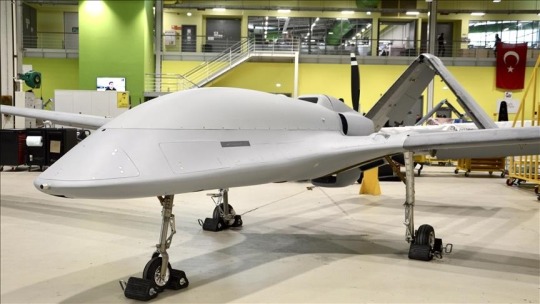
View On WordPress
0 notes
Text
Turkey’s Justice and Development Party (AKP) has been in power since 2002. Although the recent election suggests it will remain unchallenged as the country’s ruling party, it nonetheless faces an uncertain future. Its extraordinary congress that begins on Oct. 7 is supposed to chart a course that ensures victory in the upcoming local elections in 2024.
Over the past two decades, Turkish President Recep Tayyip Erdogan has empowered Turkey’s religious conservatives. But conservatism is now being eclipsed by a new nationalism. Nationalism, always a powerful force in Turkish politics, is fed by a heightened sense of national insecurity in a geopolitically volatile environment. But this fraught context simultaneously offers opportunities for projecting power, which in turn stimulates an assertive nationalism. Meanwhile, the growth of a military-industrial sector that is increasingly important in strategic and economic terms is reconfiguring the ideological superstructure, with nationalism replacing conservatism as the hegemonic force.
Erdogan’s recent campaign shows he is trying to ride this wave, but the AKP’s future prospects will be determined by the extent to which the party succeeds in uniting secular and religious nationalists who, according to polls, together constitute as many as 75 percent of voters.
In the longer term, to stay in power, Turkey’s ruling party must broaden its appeal. The conservative AKP lost support in the election to parliament in May, dropping to 35.6 percent, from 42.6 percent in 2018. Crucially, Erdogan, who is also the AKP leader and was comfortably reelected, has said that “2023 is the last time I ask for the support of the nation,” and that he will “pass the sacred banner on to the youth” after the 2023 election—which raises the question of who his successor might be.
Erdogan’s son-in-law, Selcuk Bayraktar, the chairman of the board and chief technology officer of the Turkish aerospace group Baykar and the producer of the famous drones and unmanned aircraft that bear his name, may be best placed to fulfill that mission. Turkey’s military-technological achievements have catapulted Bayraktar to public prominence, and he actively propagates a popular form of techno-nationalism that transcends the secular-religious divide.
On Sept. 1, Bayraktar for the first time indicated that he’s considering entering politics. “My ambition was never to enter politics or to become president, but to pioneer the Turkish aerospace industry. But if the struggle for national technology so requires, I will of course not be intimidated [from seeking office] and turn back,” he stated in an interview with Turkish media.
In yet another statement on Sept. 28, he reiterated his determination, if need be, to enter politics, saying, “If attempts are made by people with foreign agendas to raise hurdles in the way of Turkey’s drive for independence in military technology, I’m ready for all kinds of struggle.” In a sign that the U.S. government recognizes that Bayraktar may indeed be destined for high office, Bayraktar was invited on board the USS Gerald R. Ford during the U.S.-Turkish joint naval exercise in the eastern Mediterranean in late August, accompanied by the U.S. ambassador to Turkey, Jeff Flake.
Bayraktar is at the forefront of a Turkish success story. Two decades ago, Turkey prided itself on exporting refrigerators and television sets. Today, it has made important strides toward self-sufficiency in military technology and hardware. Its expansive defense sector has grown exponentially in 20 years. Three thousand defense companies employ 80,000 workers and engineers. Export earnings so far in 2023 amount to $2.4 billion and are expected to reach $6 billion by the end of the year.
Meanwhile, Turkey’s arms imports dropped 49 percent in the period from 2018 to 2022 compared to 2013 to 2017, a consequence of Turkish self-sufficiency in weapons. Another measure of the development of domestic defense production is the decrease of foreign input—parts and components—from 80 percent two decades ago to 20 percent today.
In 2002, Ankara invested $5.5 billion in military industrial projects; the total today has jumped to $90 billion. Turkish arms exports increased more than 36 percent in 2022 compared to 2021, making Turkey the 12th largest arms exporter globally, while Turkey ranks among the top five drone exporters globally. The Bayraktar drones have made a decisive difference on battlefields from Ukraine to Ethiopia, Libya, and Syria, as well as in Nagorno-Karabakh—and they have become a source of national pride.
Teknofest, an aviation, aerospace, and technology festival arranged since 2018 by the Turkish Technology Team Foundation (of which Bayraktar is the founder and chairman of the board) in close cooperation with the military and the government attests to the growing popular appeal of techno-nationalism. Teknofest in Istanbul between April 27 and May 1 this year drew 2.5 million visitors in person, while Teknofest in Ankara at the beginning of September drew close to 1 million visitors, with queues reaching hundreds of meters in the scorching sun.
Erdogan ascended to power as a liberal-conservative reformer in a very different global context, speaking for a Turkish business class that wanted to enjoy the benefits of globalization; his move to the nationalist right during the last decade is ultimately a reflection of interconnected changes in Turkey’s economic base and the geopolitical environment.
It was not a coincidence that the Turkish presidential election in May this year turned into a contest between two versions of nationalism. The Kurdish challenge and the presence of an estimated 4 million Syrian refugees have precipitated a further move among the electorate to the nationalist right. The social democratic opposition leader Kemal Kilicdaroglu sought to exploit this shift by appealing to xenophobia, vowing to expel Syrian refugees. To his credit, Erdogan did not attempt to score points by turning the widely unpopular Syrian refugees into scapegoats.
Kilicdaroglu did himself no favors by declaring that he would invite a U.S. company to set up an aviation and space center in Istanbul. His ally Ali Babacan, the leader of the right-wing Democracy and Progress Party, appeared even more insensitive to the prevailing national mood when he complained that the domestic drone production had become a “sacred, untouchable project” and vowed that if it won the opposition was going to “touch it,” that state support to the Baykar Group would be withheld.
It was Erdogan’s promotion of national grandeur and emphasis on Turkey’s standing in the world and its military-industrial achievements that were in tune with the electorate. Erdogan, who since 2015 has ruled in alliance with the far-right and historically secular Nationalist Movement Party (MHP), was supported by enough secular nationalists to win.
Yet, although he has tried, Erdogan cannot fully bring the ideological amalgamation of conservative and secular nationalism to its fruition. He has spent too many years of his career cultivating secular-religious divisions to be trusted by the majority of the secular nationalists.
By contrast, Bayraktar’s techno-nationalism has no religious overtones, and it appeals to a secular nationalist constituency that shares the religious nationalists’ attachment to national grandeur, similarly endorses power projection abroad, and takes pride in Turkish military-industrial achievements. This Turkish nationalism is moreover in tune with Western interests. The sale of Bayraktar drones to the countries in Central Asia—and the agreement between Turkey and Kazakhstan in 2022 to co-produce drones in Kazakhstan—is helping to offset the influence of Russia in that region.
Bayraktar has said that he was highly critical of U.S. foreign policy in his youth and “obsessed with Noam Chomsky,” but he has not clothed his vision of national grandeur in the language of the aggrieved and virulently anti-Western variants of Turkish nationalism that many in both opposition and regime circles espouse. The Turkish Islamist movement, from which the AKP sprang, has historically been anti-Western, but anti-Western Turkish nationalism has an even stronger grip on the left, which, since the founding of the Turkish republic, has continued to see the West as an imperialist enemy. However, the Iraq War and, more recently, U.S. support to the Kurds in Syria have triggered anti-Americanism among leading representatives of the secular right as well, with Devlet Bahceli, the MHP leader, asking “is the U.S. a friend or a foe?” and accusing the U.S. of having instigated coups in Turkey since the Cold War
The former Interior Minister Suleyman Soylu, a secular right-wing nationalist with close ties to Bahceli, who was removed from the cabinet after Erdogan’s reelection this May but who remains widely popular and is known to be harboring unrealistic presidential ambitions, is even more virulent in his anti-Americanism. Soylu is an ardent critic of the United States, which he has openly blamed for the 2016 coup attempt. As interior minister, Soylu regularly railed against the United States, telling the U.S. ambassador in February of this year to take his “dirty hands off Turkey.”
Soylu’s is an aggrieved nationalism that is informed by a sense of insecurity. By contrast, Bayraktar’s techno-nationalism is informed by self-confidence. While Turkish insecurity fosters anti-Americanism, confidence in Turkey’s military-industrial capabilities favors a relaxed attitude to American power. If anything, the story of Bayraktar is a case in point that Turkish military power projection aligns with and indeed serves Western and U.S. interests.
Ukraine’s armed forces have used the Bayraktar TB2 drone to great effect against Russian troops, and the Bayraktar drones early on became a symbol of Ukrainian resistance. Baykar Technologies has also on several occasions donated drones to the Ukrainian military. Bayraktar, who has stated that “we have a moral obligation to help Ukraine,” was awarded the State Order of Merit by Ukrainian President Volodymyr Zelensky in 2022. So was Haluk Bayraktar, the CEO of Baykar Technologies and Selcuk’s older brother, in 2020. He said that he is proud that technology developed by their company is supporting Ukraine’s struggle for its independence and opined that Ukraine is “fighting for a free world.”
Bayraktar represents the return of a political ideology that served the Turkish right formidably during the Cold War: a combination of free enterprise, nationalism, and commitment to the defense of the free world. Adnan Menderes in the 1950s, Suleyman Demirel in the 1960s and 1970s, and Turgut Ozal in the 1980s were pro-Western, conservative leaders who held forth visions of national development and who appealed to both secular and religious voters.
But the historical record also reveals the deficiencies of Turkish Cold War conservatism. It fatefully ignored social and economic injustices and answered the demands of the working class with repression. The result was a violent class conflict that destabilized Turkey during the 1970s. Economic inequality has similarly grown during the AKP’s two decades in power. While businesses have profited handsomely from government policies, the working class—the majority—certainly hasn’t.
Whomever Erdogan picks as his successor will have little reason to worry about the challenge of the opposition. Turkey’s opposition is in disarray after its defeat in the presidential and parliamentary elections and offers no ideological alternative. It is unlikely that it will be able to reassemble and present a united front in the upcoming local elections in March 2024.
Meral Aksener, the leader of the nationalist Good Party, the second biggest party in the defunct opposition alliance, has declared that her party is not going to endorse the reelection of the opposition mayors in Istanbul and Ankara, both members of the main opposition Republican People’s Party (CHP), as she maintains that the election debacle proved that it is impossible to cooperate with the CHP. Still, the polls put incumbent Istanbul Mayor Ekrem Imamoglu, who covets the presidency, as the victor.
According to some polls, if he were to run, Selcuk Bayraktar does the best among presumptive AKP candidates in Istanbul, but he has not given any indication that he is interested in launching a political career at the municipal level. Bayraktar has emphasized that it is the “struggle for the realization of the move for national technology,” an “ideal” for which he will “fight to the end,” that would motivate him to enter politics—a sign that he has his eyes set on the national level.
In fact, with his strong standing among the public, Bayraktar does not need to start at the ground level and move up, as Erdogan did. It is his accomplishments so far that make him a candidate for the highest office. Municipal politics, indeed, even being party leader of the AKP while Erdogan is still president, would risk wearing him out prematurely. But ultimately, techno-nationalism alone will not suffice to motivate a majority of the Turkish electorate.
The elections to parliament earlier this year showed that the impoverishment of the working class and the growth of inequality are providing fertile ground for a radical contestation of the economic order. While Turkey’s mainstream left, the CHP, also embraces neoliberal economics and was accordingly unable to win over the working class, the Islamist New Welfare Party struck a chord among working-class voters with its criticism of the injustices of capitalism and calls for an Islamic “just order”—a slogan associated with the Welfare Party of the 1980s and 1990s, which counted Erdogan as a member and was a precursor to the AKP. Scoring their best result in many years, the unreformed Islamists won 1.5 million votes. That is a warning to the Turkish ruling elite that it can ill afford to leave social and economic inequalities unchecked.
Uniquely among the Turkish elite, Selcuk Bayraktar personifies national ambitions that excite and unite religious and secular constituencies alike—but to win at a national level, he would have to forge an inclusive vision in socioeconomic terms.
With the working classes sliding into poverty, the offer of national grandeur is doomed to be insufficient. Erdogan’s heir apparent will need to offer social nationalism, pairing his techno-nationalism with a reassurance that its material benefits will be shared by the masses.
That would come naturally for Bayraktar, whose family is rooted in the popular classes. Bayraktar’s father hailed from Istanbul’s working class—he was the son of a fisherman—but in 1985 started what for many years remained a small auto-parts company. The community work of the Bayraktar family—including educational and medical charities—demonstrates a sense of solidarity with the less fortunate in society that, if translated into a political program, will increase the likelihood that Selcuk Bayraktar will become Turkey’s next leader.
0 notes
Text
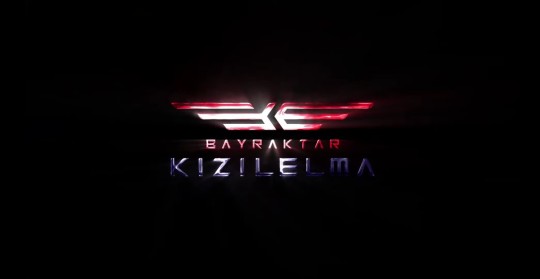
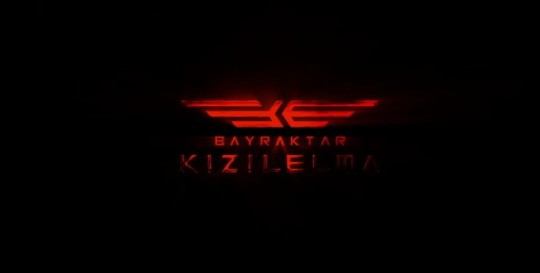




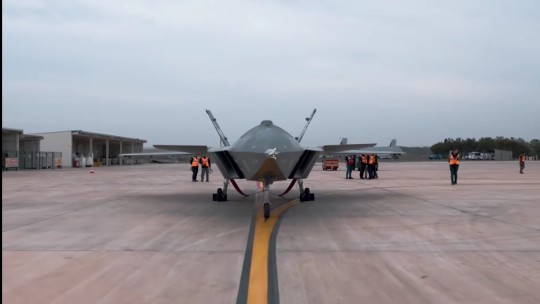
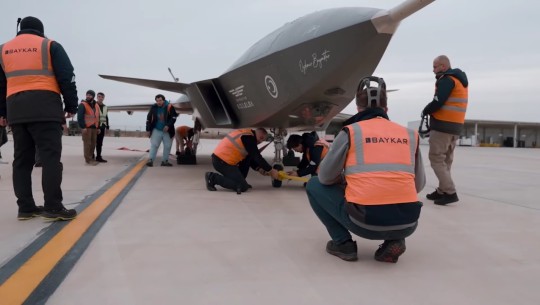


#air force#aircraft#Baykar Technology#Selçuk Bayraktar#military#Türkiye#Turkish#Bayraktar Kızılelma#Kızılelma#National technology move#Milli Teknoloji Hamlesi#🇹🇷#turkey 🇹🇷#turkish armed forces
4 notes
·
View notes
Text
Defying risks: defense companies open factories in Ukraine amidst war
Throughout history, it has been common for foreign nations to support countries engaged in wars through various means, such as providing military aid, weapons, and financial assistance. However, the establishment of real factories, production lines for military or civilian goods, or any other foreign industries on the territory of a country actively involved in a war with another nation is a rare occurrence.
Prior to the 2022 Russian full-scale invasion of Ukraine, Western allies such as the U.S. and UK began providing arms and ammunition to aid Ukraine in countering the imminent advance of Russian troops. Weapons like the U.S.-made Javelin anti-tank missiles and the British Next-generation Light Anti-tank Weapons Systems (NLAWS) played a crucial role in the initial phase of the war, allowing the Ukrainian forces to target and neutralize advanced Russian columns, and disrupt fuel supplies. As the war persisted, Ukraine received additional advanced and effective weaponry, including howitzers, artillery systems, armored vehicles, tanks, and long-range missiles, further enhancing its defensive capabilities and ability to respond to the aggression. These military supplies represented vital support from Western nations and played a significant role in bolstering Ukraine’s efforts to defend its sovereignty and territorial integrity.
The influx of Western equipment into Ukraine during the war brought to light the crucial issue of maintenance and repair. With the introduction of NATO armored vehicles, tanks, and artillery systems, many of which were new to both Ukrainian soldiers and the repair factories in the country, the need for swift and efficient maintenance became significantly important. Initially, the solution involved sending the equipment abroad for repair, but this approach posed challenges, particularly due to the valuable time lost in the process.
Recognizing the urgency and the growing demand for maintenance capabilities in Ukraine, some of the world’s leading companies specializing in the production of defense equipment, such as German Rheinmetall, British BAE Systems, and Turkish Baykar, began contemplating the possibility of opening factories or repair lines within Ukraine. By establishing local facilities, these companies aimed to provide timely and specialized maintenance services, reducing the downtime of critical military equipment and enabling Ukrainian forces to remain operationally ready during the ongoing conflict.
However, despite the potential benefits of opening factories or repair lines in Ukraine, some companies may perceive the risks as very high due to security concerns. Constant Russian missile attacks throughout Ukraine’s territory pose serious threats to personnel, infrastructure, and operations. Factories could be at risk of direct attacks, facing potential damage or destruction, while putting the employees’ safety in jeopardy.
Baykar, Turkey
Taking all factors into consideration, Baykar, a Turkish defense company specializing in UAVs, made a bold decision to establish the first foreign drone production factory in Ukraine during the war. The Bayraktar drones, which have demonstrated their effectiveness during Russia’s war against Ukraine, will now be manufactured within the country. Furthermore, this production will involve a joint effort, with the new model of the drone featuring a Ukrainian-made engine, marking a notable advancement in defense and aviation collaboration between Turkey and Ukraine.
The building of the factory has already started in the Kyiv region. Once operational, the future factory will go beyond mere assembly and repair points, encompassing the entire production process for Bayraktar drones, complete with the necessary technologies and research facilities.
“The situation in Ukraine today is challenging, with electricity outages and a precarious security situation. However, it is crucial to establish technological facilities not only for immediate needs but also to secure the future of Ukraine. In selecting the factory’s location, we strategically opted for a place that can be safeguarded with air defense systems or concealed underground. Developing such a facility is a complex endeavor, but we are wholeheartedly dedicated to this project. As Baykar, we have committed to building this factory using our own resources,” stated Haluk Bayraktar, the CEO of Baykar in an interview.
Baykar has gained significant recognition in Ukraine, primarily due to the “People’s Bayraktar” fundraising campaign, where the entire country united to collect funds for the acquisition of three Turkish drones for the Ukrainian Armed Forces. The campaign’s success led to similar initiatives being launched in Poland, Norway, Canada, Lithuania, and Latvia. Surprisingly, at the conclusion of the fundraising efforts, Baykar decided to provide the drones free of charge. This act of generous assistance not only showcased crucial friendly support but also garnered extensive media coverage worldwide, serving as exceptional advertising for the company.
Rheinmetall, Germany
Another leading defense company to open a plant in Ukraine is Rheinmetall. With expertise in both the automotive and defense divisions, Rheinmetall is renowned for producing a diverse array of military arms and equipment, including armored vehicles, artillery systems, ammunition, air defense systems, and advanced combat simulation technology. As a prominent player in the defense industry, Rheinmetall operates factories and facilities across multiple countries, such as Germany, the United States, South Africa, Switzerland, and others.
According to reports from Rheinmetall CEO Armin Papperger, the German company’s initial plan involves opening a workshop in the west of Ukraine dedicated to armored vehicles and tanks maintenance and repair. This workshop is set to be operational within the next few months. The subsequent phase of their undertaking entails manufacturing and repairing Rheinmetall’s Fuchs armored personnel carrier as well as tanks under license at the same facility. In this collaboration, Rheinmetall will work in partnership with Ukroboronprom, a Ukrainian state-owned defense group. As part of the arrangement, Ukroboronprom will take ownership of the facility.
“[Ukrainians] have to help themselves — if they always have to wait [for] Europeans or Americans [to] help them over the next 10 or 20 years… that is not possible,” said Papperger.
BAE Systems, United Kingdom
BAE Systems is a British multinational defense, security, and aerospace company. The company manufactures a diverse array of military equipment, including M777 Howitzers, Challenger 2 tanks, M2 Bradley Infantry Fighting Vehicles (IFVs), CV90 IFVs, Paladin Self-Propelled Howitzers, and Stormer HVM air defense systems, among others. These cutting-edge armaments provided by BAE Systems play a crucial role in enhancing the capabilities of the Ukrainian Armed Forces.
According to the President of Ukraine Volodymyr Zelenskyy, the company has expressed its intention to open an office in Ukraine. Following a virtual meeting with BAE Systems executives, Zelenskyy announced that the company is considering the possibility of establishing facilities for the maintenance and production of its products within the country.
“We are prepared to serve as a significant regional hub for the maintenance and manufacture of a variety of BAE Systems’ products,” the president said. “We are also interested in forging a more extensive relationship than we currently maintain.”
Despite the high risks associated with launching new factories in Ukraine during the ongoing war, there are positive examples proving that it is possible, especially for defense companies. Foreign nations have historically supported countries in conflict through military aid, but establishing factories within a war-torn country is rare. However, examples of the companies such as Baykar, Rheinmetall, or BAE Systems exemplify the dedication to enhancing Ukraine’s defense capabilities and serve as an expression of willingness to develop a stronger partnership.
These initiatives demonstrate the attractiveness of Ukraine as a potential European hub for the repair and production of Western vehicles and equipment, paving the way for self-sufficiency in its defense capabilities. Despite the challenges, these partnerships illustrate the growing confidence in Ukraine’s potential as a strategic defense ally and an emerging player in the global defense industry.
Author: Artem Miniailo
Editor: Kvitka Perehinets
Source
0 notes
Text

Russia accelerates manufacture of Su-57 Felon fighters
Fernando Valduga By Fernando Valduga 19/07/2023 - 16:00in Military
Russia plans to increase deliveries of fifth-generation fighters to its armed forces, said Russian Prime Minister Mikhail Mishustin.
“It is planned to increase deliveries of fifth-generation fighters,” the head of the Russian government told a coordination council to meet the needs of the Russian armed forces on Tuesday.
He said that one of the board's priorities is to ensure that the state's purchase order is being implemented on time.

"For example, at the end of next month, aircraft manufacturers delivered another batch of new Su-35S aircraft to the ministry of defense. More aircraft are already being manufactured,” he added.
In addition, the prime minister added that Uralvagonzavod had already delivered its scheduled batch of T-90M Proryv and T-72BZM tanks.
"The company gained a considerable boost last year, more than tripling its production in the reported period. The armored vehicles they manufacture are particularly necessary to fulfill the tasks of the special military operation," he said.
The Su-57 (Felon by NATO classification) is a multifunctional fifth-generation Russian fighter designed to destroy all types of air, ground and surface targets. The aircraft has a supersonic cruising speed, intra-fuselage weapons, radio absorption equipment (a "stealth" technology), as well as the newest equipment on board. The intellectualization of the Su-57 systems allows them to assume part of the functions of the pilots, including piloting and preparation for the use of weapons.
Source: TASS
Tags: Military AviationRussiaSukhoi Su-57 Felon
Sharing
tweet
Fernando Valduga
Fernando Valduga
Aviation photographer and pilot since 1992, has participated in several events and air operations, such as Cruzex, AirVenture, Daytona Airshow and FIDAE. He has works published in specialized aviation magazines in Brazil and abroad. Uses Canon equipment during his photographic work around the world of aviation.
Related news
The Akinci is a medium-altitude and long-resistance twin-engine unmanned fighter plane (MALE), capable of firing a wide range of ground attack missiles.
MILITARY
Baykar signs “biggest export contract of all time” with Saudi Arabia for Akinci drones
19/07/2023 - 14:00
SAAB
IMAGES: Saab pilot wins award flying Gripen E at RIAT 2023
19/07/2023 - 12:00
MILITARY
Germany maintains blockage of the sale of A400M aircraft to the United Arab Emirates
19/07/2023 - 11:00
MILITARY
Argentine Minister of Defense visits India to negotiate the purchase of Tejas jets and BrahMos missiles
19/07/2023 - 08:58
MILITARY
Russia continues its dangerous behavior in Syria with "non-professional" flights
19/07/2023 - 08:33
MILITARY
IMAGES: Sukhoi modifies design of Sukhoi Su-75 fighter
18/07/2023 - 21:29
homeMain PageEditorialsINFORMATIONeventsCooperateSpecialitiesadvertiseabout
Cavok Brazil - Digital Tchê Web Creation
Commercial
Executive
Helicopters
HISTORY
Military
Brazilian Air Force
Space
Specialities
Cavok Brazil - Digital Tchê Web Creation
10 notes
·
View notes
Text
Bayraktar Akinci Unmanned Combat Aerial Vehicle Hits Moving Sea Target with Guided Munitions
on Thursday announced it had successfully tested a new domestically developed drone optical technology, the latest advancement in the critical system that had been for years imported from abroad. The ASELFLIR-500 electro-optical reconnaissance, surveillance and targeting system, developed by Aselsan, was tested by the Bayraktar Akinci unmanned combat aerial vehicle, which struck a moving target at sea, according to a video shared by the drone developer, Baykar. The video footage showed Akinci, the larger sibling of its battle-proven Bayraktar TB2 drone, utilizing the ASELFLIR-500 to destroy an Albatros unmanned surface vessel using smart ammunitions MAM-T and MAM-L, developed by Roketsan. The electro-optic system is a more advanced tech compared to the Common Aperture Targeting System (CATS), which Aselsan had developed after Canada suspended sales of its optical equipment to Türkiye in 2020.
on Thursday announced it had successfully tested a new domestically developed drone optical technology, the latest advancement in the critical system that had been for years imported from abroad. The ASELFLIR-500 electro-optical reconnaissance, surveillance and targeting system, developed by Aselsan, was tested by the Bayraktar Akinci unmanned combat aerial vehicle, which struck a moving target…

View On WordPress
0 notes
Text
BIG REVOLUTION IN TURKISH DEFENCE INDUSTRY
This week we focused Turkish defence industry and new technological products. I wish you pleasant reading.
BIG REVOLUTION IN TURKISH DEFENCE INDUSTRY
This week, there was a couple of news, this news made a big sound in Turkish defence industry. In addition some foreign news agents published the Turkish defence industry news. Turks are made a unmanned combat aerial vehicle carrier, so its name is TCG ANADOLU and yesterday BAYKAR made a test flight of unmanned modern combat aircraft KIZILELMA. In this…
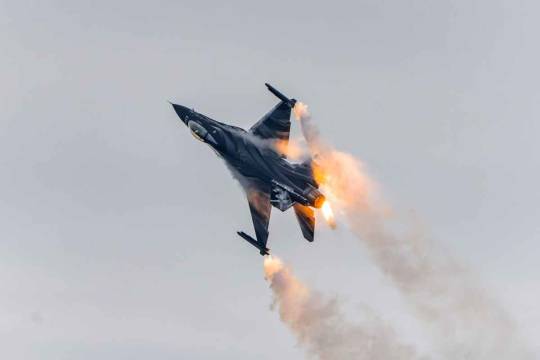
View On WordPress
#aircraft#airnews#airplane#aviationNews#Baykarbayraktarkızılelma#baykarbayraktartb3#defenceindustry#defencenews#KIZILELMA#militaryaviation#newtechnologies#newwarconcept#turkishairforce#Turkishdefence#turkishnavy
0 notes